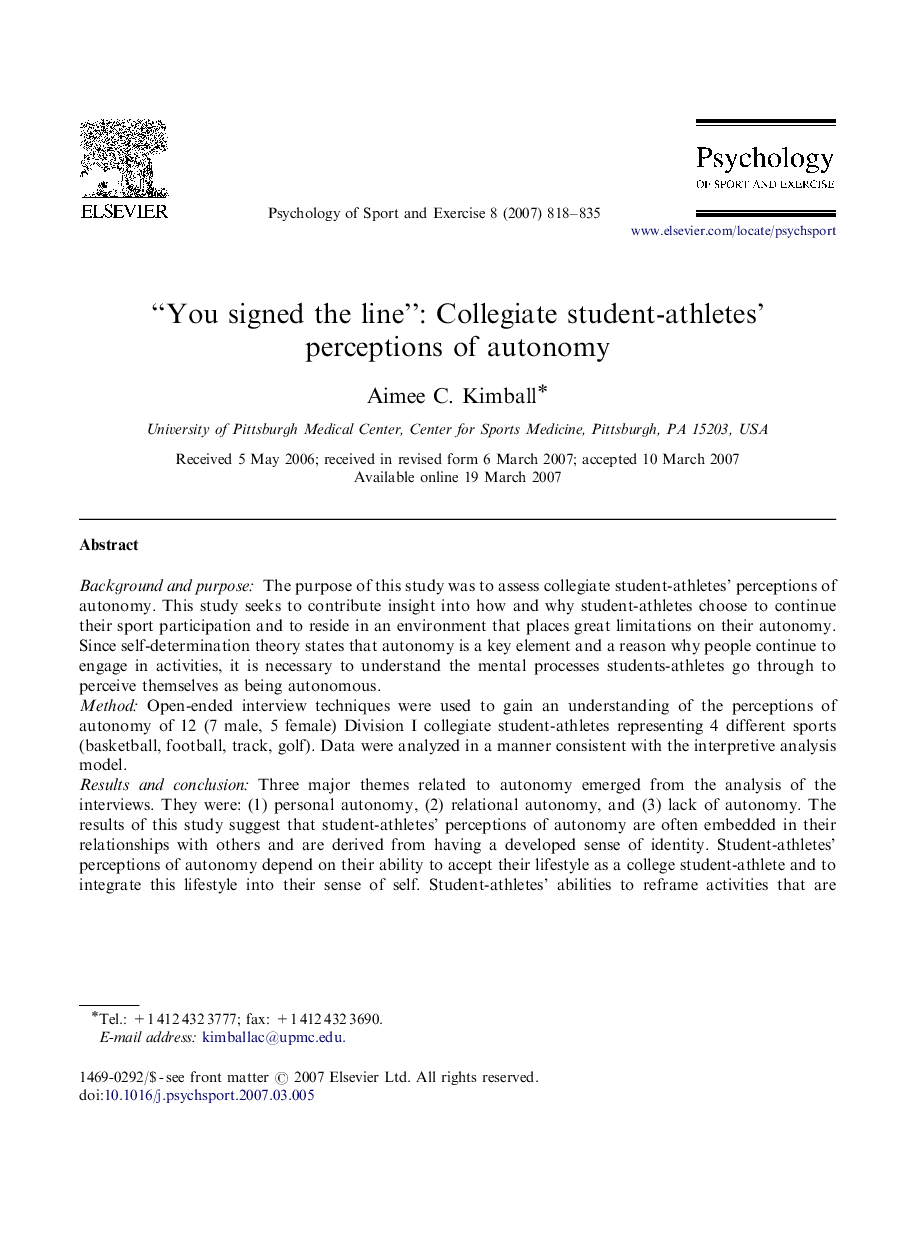| Article ID | Journal | Published Year | Pages | File Type |
|---|---|---|---|---|
| 894888 | Psychology of Sport and Exercise | 2007 | 18 Pages |
Background and purposeThe purpose of this study was to assess collegiate student-athletes’ perceptions of autonomy. This study seeks to contribute insight into how and why student-athletes choose to continue their sport participation and to reside in an environment that places great limitations on their autonomy. Since self-determination theory states that autonomy is a key element and a reason why people continue to engage in activities, it is necessary to understand the mental processes students-athletes go through to perceive themselves as being autonomous.MethodOpen-ended interview techniques were used to gain an understanding of the perceptions of autonomy of 12 (7 male, 5 female) Division I collegiate student-athletes representing 4 different sports (basketball, football, track, golf). Data were analyzed in a manner consistent with the interpretive analysis model.Results and conclusionThree major themes related to autonomy emerged from the analysis of the interviews. They were: (1) personal autonomy, (2) relational autonomy, and (3) lack of autonomy. The results of this study suggest that student-athletes’ perceptions of autonomy are often embedded in their relationships with others and are derived from having a developed sense of identity. Student-athletes’ perceptions of autonomy depend on their ability to accept their lifestyle as a college student-athlete and to integrate this lifestyle into their sense of self. Student-athletes’ abilities to reframe activities that are non-autonomous and to integrate these behaviors into their value system enable them to experience greater autonomy and satisfaction in their role as collegiate student-athletes.
